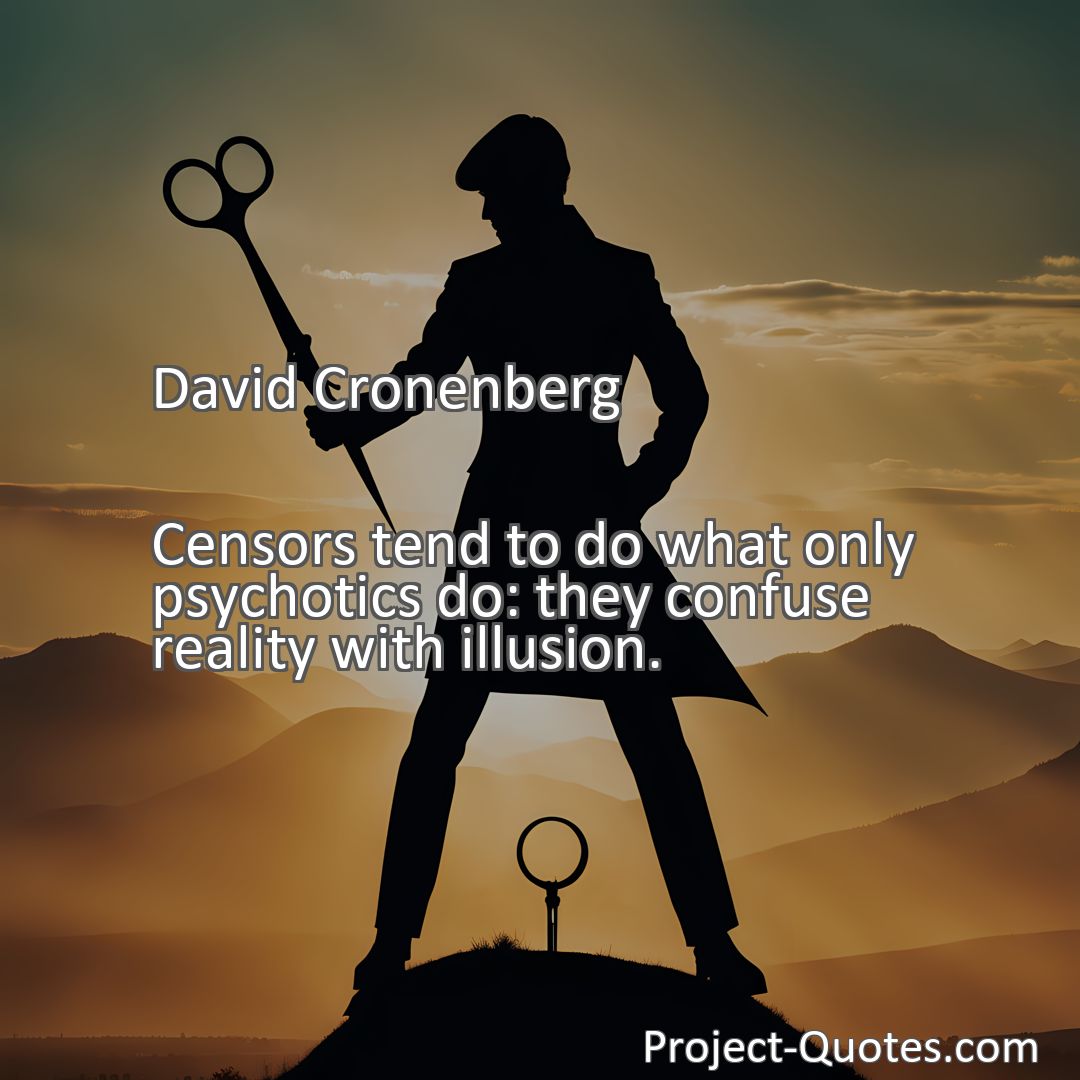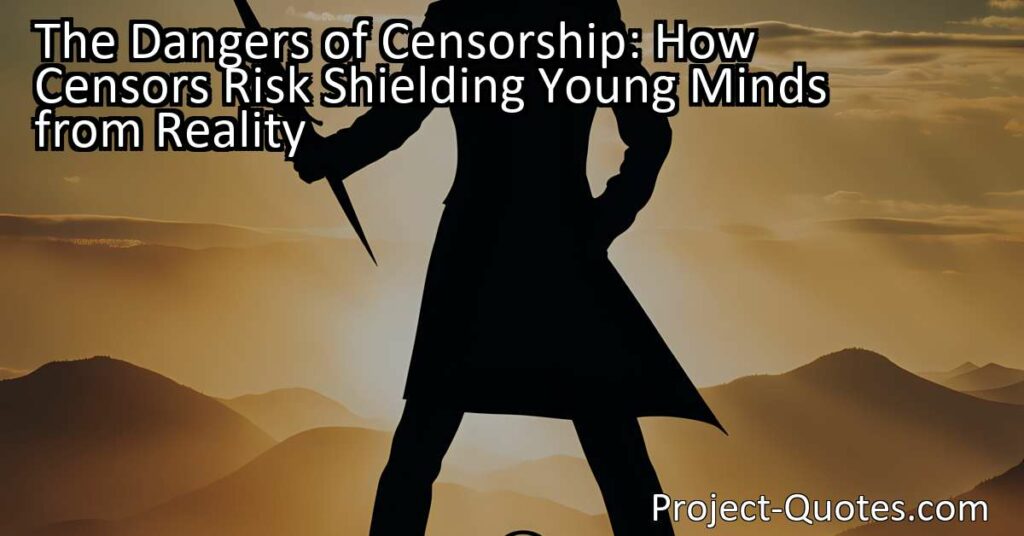Censors tend to do what only psychotics do: they confuse reality with illusion.
David Cronenberg
The Dangers of Censorship: Censors Risk Shielding Young Minds from Reality Censorship is an issue that has sparked debate throughout history. The quote, “Censors tend to do what only psychotics do: they confuse reality with illusion,” shows the potential dangers of censorship. By controlling information and limiting expression, censors risk shielding young minds from understanding the realities of the world and hindering their ability to think critically.
Table of Contents
Meaning of Quote – Censors tend to do what only psychotics do: they confuse reality with illusion.
Censorship is a topic that has stirred up controversy and debate throughout history. It refers to the act of controlling or suppressing the dissemination of information, ideas, or artistic expression. The quote, “Censors tend to do what only psychotics do: they confuse reality with illusion,” encompasses a powerful message about the nature of censorship and highlights the potential dangers it poses to society.
To fully grasp the implications of this quote, it is important to understand the role of censors and the consequences of their actions. Censors are individuals or groups entrusted with the responsibility of deciding what is acceptable for public consumption. They often possess the authority to restrict or prohibit the distribution of materials that they consider offensive, dangerous, or subversive.
By equating censors with psychotics, the quote suggests that censorship is an irrational act that stems from a distorted perception of reality. This implies that censors fail to recognize the essential role of freedom of expression in fostering a healthy and democratic society. Instead, they believe that by controlling information and ideas, they can shape reality to align with their own agenda or ideology.
However, as history has shown, censoring information and stifling expression can have dire consequences. One only needs to look at examples like the Nazi regime in Germany or the Communist Party in Soviet Russia to understand how censorship can be used as a tool to manipulate public opinion and maintain power. In these instances, reality was distorted by controlling people’s access to information, suppressing dissenting opinions, and promoting propaganda, all leading to horrific outcomes.
Moreover, the quote suggests that censorship is rooted in confusion a confusion that blurs the line between reality and illusion. When censorship prevails, it becomes challenging for individuals to distinguish facts from manipulated narratives. This erosion of truth can give rise to a society that is built upon illusions, where citizens are fed a distorted version of reality that serves the interests of those in power.
One need not look further than current events to see the relevance of this issue. The rise of misinformation and the spread of fake news in the digital age have only exacerbated the need for critical thinking skills and the preservation of free expression. Censors may argue that their actions are necessary to protect society from harmful or misleading information, but by doing so, they risk creating an environment in which the truth is elusive and illusory.
Furthermore, censorship not only hinders the dissemination of information but also undermines creativity and artistic expression. Art has long been considered a mirror that reflects society, challenging norms, provoking thought, and expressing diverse perspectives. However, when censors limit artistic freedom, they suppress the potential for innovation and the exploration of new ideas.
Literature, in particular, has often faced the wrath of censors due to its ability to challenge societal norms and push boundaries. Books that tackle controversial topics or present ideas deemed offensive are frequently subjected to bans or restrictions. However, great literary works have the power to open minds, spark dialogue, and encourage empathy. Censoring such literature deprives readers, especially young readers, of the opportunity to engage with diverse perspectives and expand their worldview.
While protecting certain sensitive topics from young audiences can be justified to a certain extent, it is crucial to find a balance that respects both the need for age-appropriate content and the importance of free expression. By denying access to content that discusses challenging themes, censors risk shielding young minds from the realities of the world and hindering their ability to think critically and empathize with others.
In conclusion, the quote, “Censors tend to do what only psychotics do: they confuse reality with illusion,” effectively captures the fundamental flaws of censorship. Censors, by attempting to control information and limit expression, distort reality and create an illusory version of society. This quote serves as a reminder of the dangers of censorship: the erosion of truth, the stifling of creativity, and the potential for manipulation. To preserve a healthy and democratic society, it is crucial that censorship is approached with caution, and the importance of free expression is recognized and protected.
I hope this quote inspired image brings you hope and peace. Share it with someone who needs it today!


